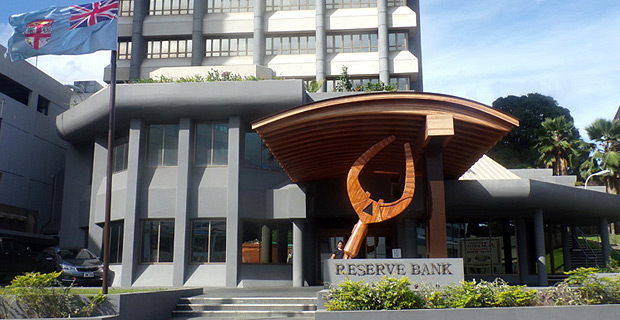
The Reserve Bank of Fiji says domestic sectoral performance to-date remains largely mixed due to increases and decreases in different sectors in the economy.
The RBF says that visitor arrivals rose by 4.4 percent in the year to August due to higher arrivals from the United States, New Zealand, Japan, Australia, and Pacific Island Countries.
The central bank's economic review for September also states that mahogany production rose, while woodchips, pinewood, sawn timber, and gold output fell in the same period.
The RBF says cane and sugar outputs declined in the first fifteen weeks of crushing but are expected to surpass last year’s production levels for the entire season.
It also states that consumption activity slowed further as revealed by the latest partial indicators.
Cumulative to August, the RBF says new lending by commercial banks for consumption purposes fell slightly owing to lower lending to private individuals which more-than-offset the marginal growth in lending to the wholesale, retail, hotels and restaurants sector.
Registrations of new and second-hand vehicles also fell in the same period.
However net Value Added Tax collections grew on the back of lower VAT refunds and marginal growth in domestic VAT in the year to August.
The Reserve Bank of Fiji also states investment activity continues to weaken. The RBF says that commercial banks’ new investment lending fell cumulative to August, due to a decline in lending to both real estate and building and construction sectors.
The Reserve Bank also states that in the second quarter, the value of building permits and completion certificates issued declined by 12.6 percent and 41.1 percent, respectively suggesting a slowdown in construction activity.
The RBF says labour market conditions remain weak as portrayed by the RBF’s Job Advertisements Survey. The total number of vacancies advertised declined by an annual 2.7 percent in the year to August, led by lower recruitment intentions in the community, social and personal services; transport, storage and communication; electricity and water; and the mining and quarrying sectors.
Banking system liquidity increases to $617.7 million - RBF (Wednesday 09/10/2019)
By: Vijay Narayan

The Reserve Bank of Fiji states that the banking system liquidity increased in August by 21.9% to $617.7 million, on account of an increase in foreign reserves which more-than-offset the increase in currency in circulation deposits and statutory reserve.
The RBF states that as of 27th September, liquidity stood at $628.2 million.
It also says that over the month in August, the Fijian dollar strengthened against the Australian and NZ dollars but weakened against the Yen, US dollar and the Euro. Annually, the FJD appreciated against the AUD, Euro and the NZD but was lower against the Yen and the USD.
The RBF also says that in the year to June, total exports (excluding aircraft) rose by 2.1 percent largely underpinned by growth in re-exports, while domestic exports declined mainly due to lower exports of woodchips; gold; soft drinks; animal and vegetable oils and fats; bauxite; and chemicals.
In the same period, imports (excluding aircraft) declined by 4.0 percent attributed to lower imports of machinery and transport equipment (excluding aircraft); chemicals; and animal and vegetable oils and fats.
Tourism earnings grew by 6.8 percent to total $895.4 million in the year to June 2019, compared to a 4.6 percent growth in the same period in 2018. Cumulative to August 2019, inward remittances grew by 6.2 percent to total $399.7 million, compared to the 10.6 percent growth in the corresponding period last year. The growth in inward remittances was largely driven by gifts, maintenance & donations in the review period.
Annual inflation in August stood at 1.2 percent, slightly higher than the 0.7 percent in July but significantly lower than the 4.3 percent registered in August last year.
The monthly outcome was underpinned by higher prices noted for the food and non-alcoholic beverages; alcoholic beverages, tobacco; and education categories.
The year-end inflation rate is now forecast at 2.0 percent.
Foreign reserves increased in August to $2.16 billion, sufficient to cover 5 months of retained imports.
Stay tuned for the latest news on our radio stations


